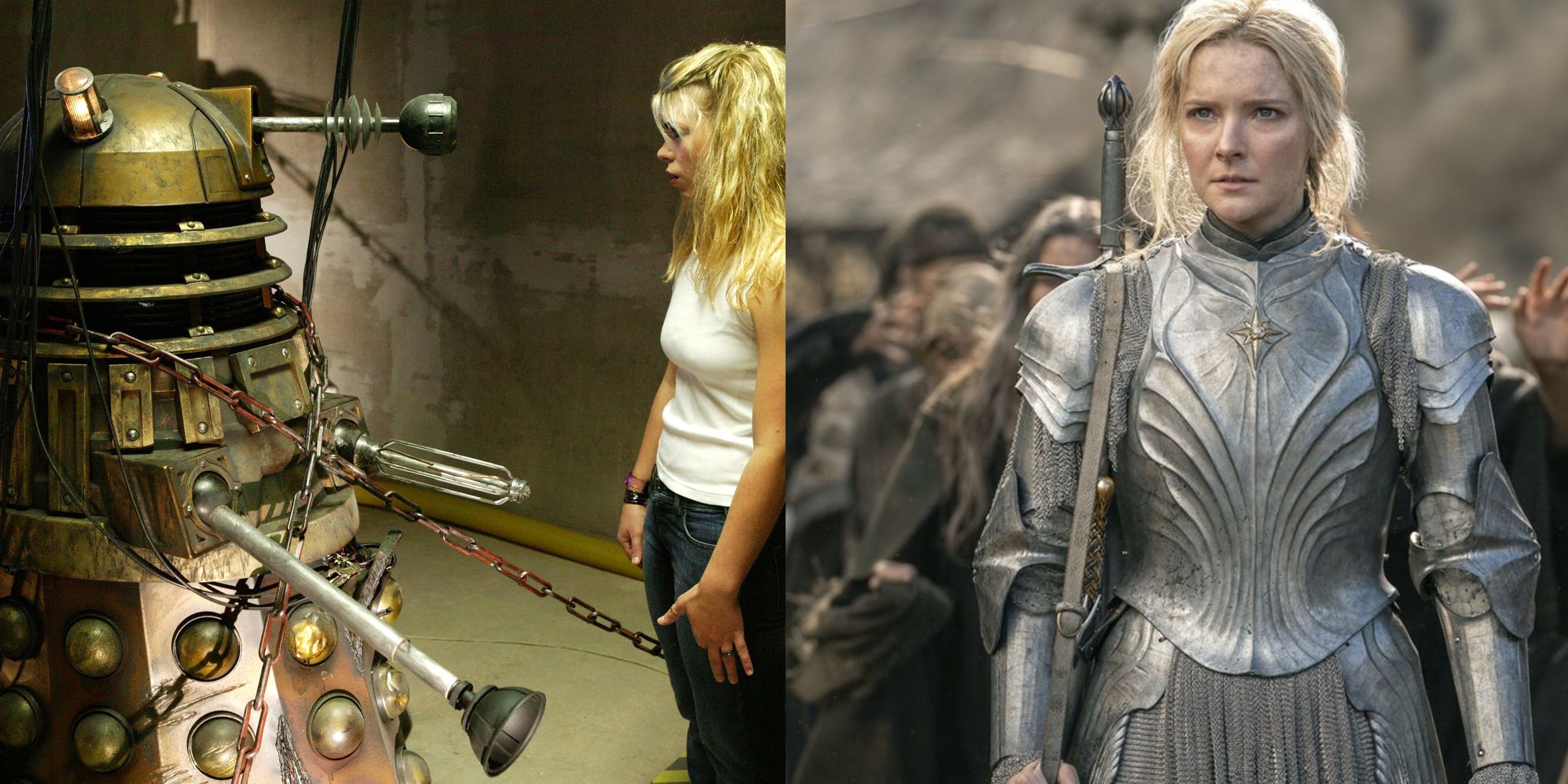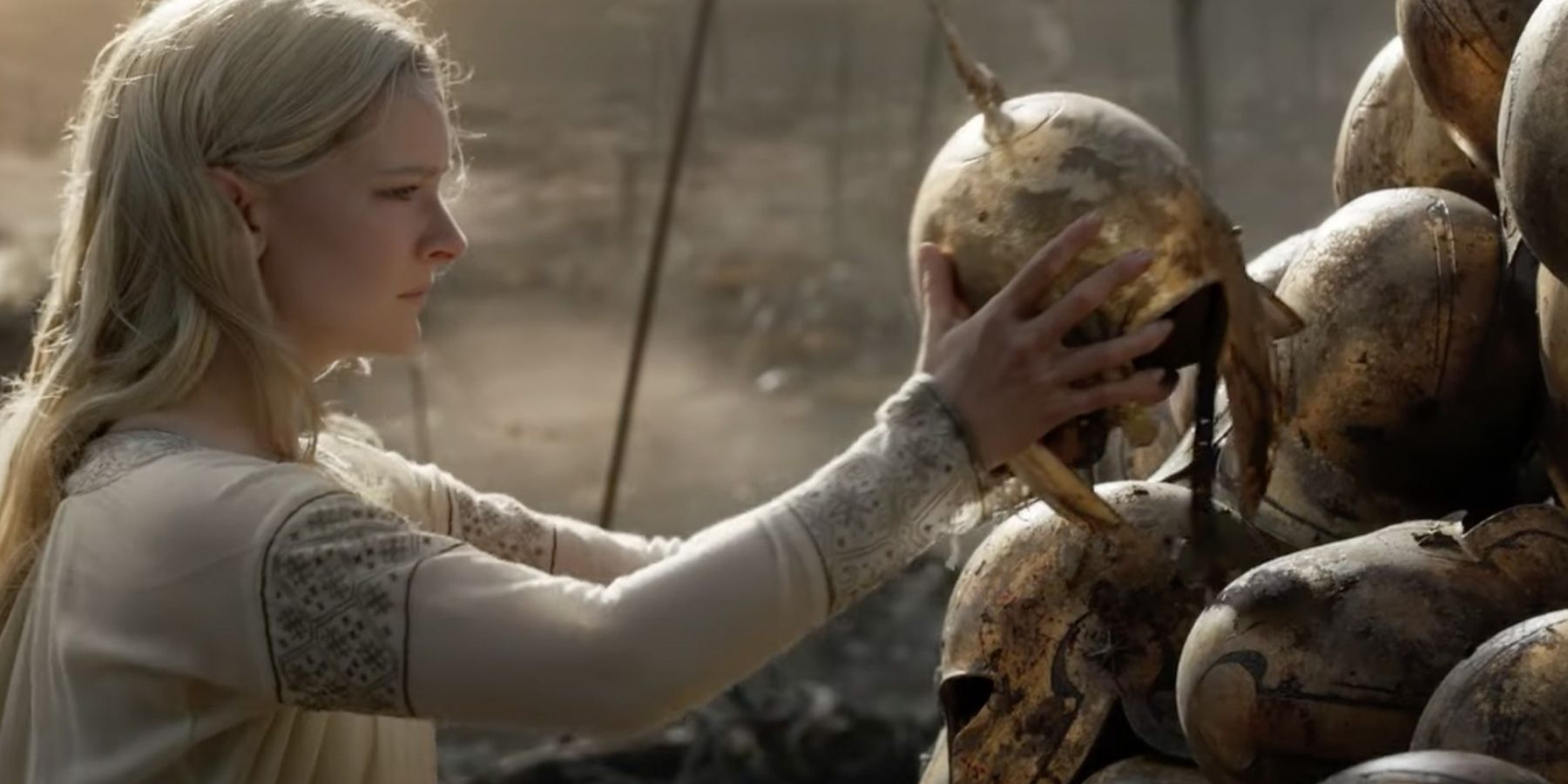The heroes of genre fiction might have to do some pretty morally challenging things to save the day, but a smart story takes time to question their actions. If an entire society is deemed evil, is it right to wipe them out without exception? That question was asked recently in an episode of Rings of Power and years ago in many episodes of Doctor Who.
Both science fiction and fantasy have an unfortunate habit of reducing groups of people down to a single identifiable trait. When that trait is conquest, war, murder, or evil, the narrative treads into some difficult territory for everyone involved.
In "Udûn," the sixth episode of Rings of Power, the mightiest of the Elves and hero of the series Galadriel finally meets the series' foreboding villain Adar. Adar leads the Orcish forces that took Galadriel's beloved brother from her. Much of her life has been dominated by seeking vengeance and protecting others from their violence. In their conversation, Adar reveals to Galadriel that he is one of the Moriondor, Elves corrupted by the previous overarching evil Morgoth. Galadriel announces her intent to eliminate the Orcs as a species, while Adar wonders aloud whether he's the only Elf corrupted by darkness. It's a cousin to the classic "we're not so different, you and I" villain speech, but it's most reminiscent of an iconic Doctor Who episode.
In "Dalek", the sixth episode of the freshly rebooted Doctor Who, the newly christened Ninth Doctor finally meets the series' most iconic villain, the Daleks. The alien menace that destroyed the Doctor's home and species finally rejoin the story as part of the reboot. The Doctor has spent many of his adventures over the years defeating the Daleks and protecting others from their conquest. The episode takes place in 2012, in a museum that has a living Dalek on display. When it escapes and does what they always do, the Doctor tries to help. The arguable climax of the episode comes when the Doctor goes on a screaming rant against the alien menace. He announces his desire to see the species wiped from the universe at full volume when the Dalek coldly responds "you would make a good Dalek."
The comparisons are obvious. Both series feature a hero compelled to action by the death of one or several loved ones. Both series see that hero continue their quest to stop theoretically endless destruction by defeating their enemies at every turn. Both heroes then go so far into vitriolic hatred of the species that wronged them that they seek to render them extinct, regardless of any potential for good. The villains of both episodes address the unfortunate similarities between their actions and those of the hero. It's most notable in the big final exchange. One could almost edit the dialogue to see Galadriel speak to the Dalek or vice versa, and it would probably flow fairly well. Though the two concepts are extremely similar, there are a few key differences that bring additional character to the scenes.
Doctor Who has gone back to this concept multiple times with much less success. The Daleks are iconic to the franchise, so the show has to keep bringing them up, but the show has also used nearly identical dialogue exchanges in these encounters. The thing about the Doctor is that, in just about every other case, he isn't anything like a Dalek. The shocking moment of that scene is the fact that a character most fans have seen as a lovable weirdo with so much compassion he needs a second heart is shouting about ridding the galaxy of filth. Galadriel isn't non-violent, nor has she been quiet about her desire to eliminate the Orcs. She's a morally upstanding person, but the most consistent element of her character is a burning desire for vengeance. She has been forever changed by the loss of her loved ones, she refuses to lay down her sword, and she has demonstrated a willingness to actively betray her well-being to keep fighting. Though these interactions with the villains say the same thing, it's a shade cast on two very different characters.
When the Doctor confesses his anger against the Daleks or his desire to see them exterminated, it's a black mark against an otherwise morally unassailable good person. The Doctor sees it as a moral failing and repeatedly learns to seek peace. When Adar opines that his choice to turn willingly to darkness isn't that different from Galadriel's choice to put every Orc to the sword, it's a painful reminder to both the character and the audience. Galadriel has a lot of growing up to do before she becomes the wise and kind elder that people know from the movies. There is hatred in Galadriel that makes her something more than a hero. Rings of Power has made an interesting and unique decision to set a gritty anti-hero gradually finding her way to pure-hearted heroism in the starring role.


.jpg)
